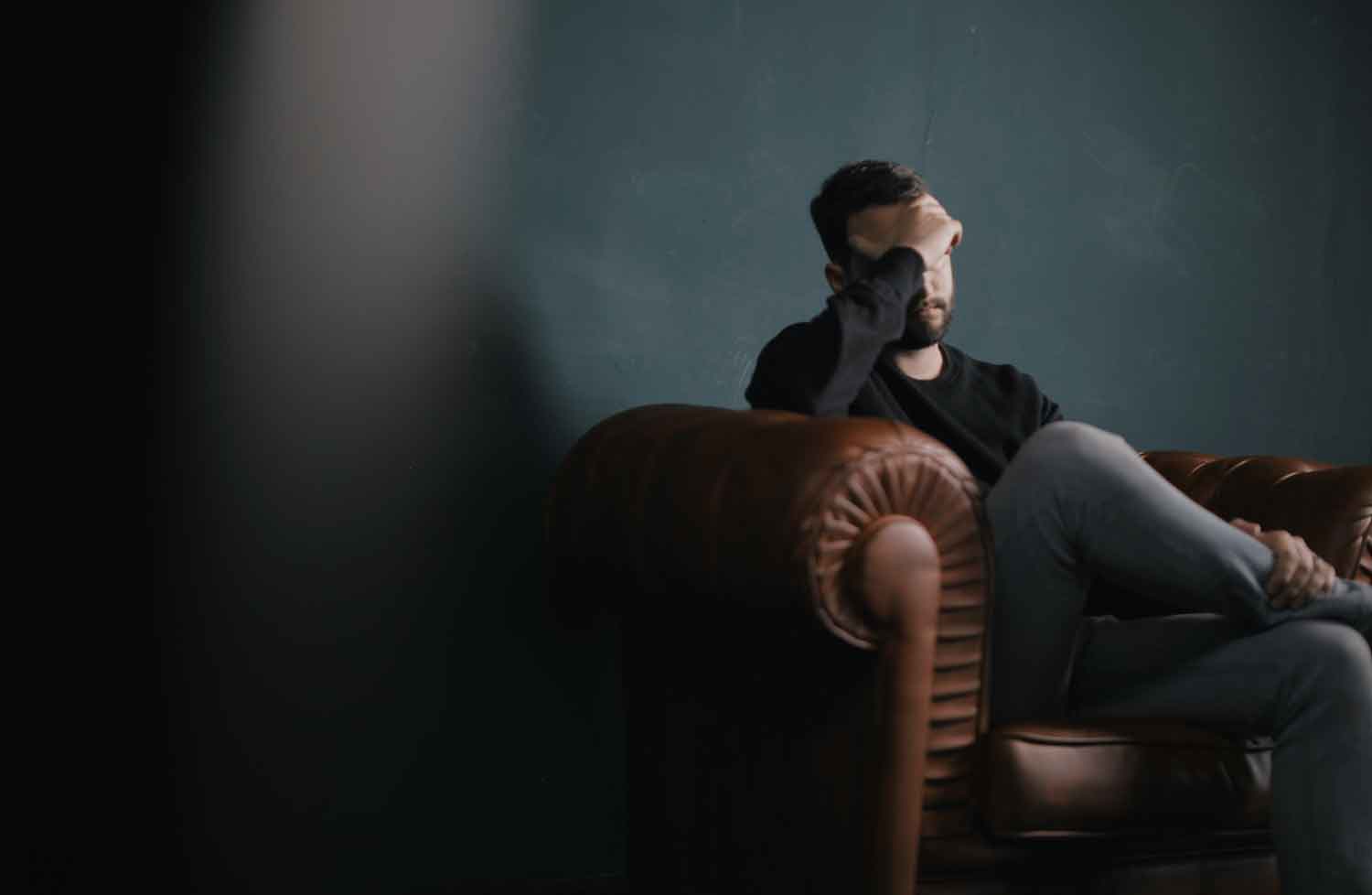From birth, boys are imprinted with phrases of power: “You are strong, you are a man!”, “Men never cry!”, etc. Under such conditions, how could it be possible to diagnose or experience an emotional state or experience, such as depression? Hard to say and very hard to recognize, unfortunately. This means that the number of men who recognize and are treated for depression is much lower than that of women.
Both men and women can experience depression, but the signs and symptoms can be different. Although the main symptom of depression for many is often a feeling of sadness, men may have a greater tendency than women to feel anger, demonstrate aggressive feelings, and engage in substance abuse. Because of the different symptoms and because men are usually less willing to talk about and seek treatment for depression than women, many men may have undiagnosed depression.
Depression is a mood disorder that can go undiagnosed in men, although it is common. According to the American Psychological Association, an estimated 9 percent of men in the United States experience feelings of depression or anxiety every day, and 30.6 percent of men experience a period of depression in their lifetime. Depression is a mood disorder that affects a person’s thoughts, feelings, body and behavior. Doctors may refer to depression as major depression, major depressive disorder, or clinical depression.
Depression is more common in women, affecting 10.4% of women compared to 5.5% of men. However, the number of men who commit suicide is four times higher than that of women. One reason for this could be that men are less likely to receive a diagnosis of depression. Depression is a significant risk factor for suicide. It is important to understand how the symptoms of depression may differ between men and women. It can help people become aware of depression in themselves and their loved ones. Recognizing depression is the first step to recovery.
Some symptoms of depression are the same for men and women. These include:
- feeling sad, crying, weakness, guilt, or inner emptiness
- loss of pleasure in enjoyable activities
- appetite or weight change
- too little or too much sleep
- feeling restless or tired
- problems concentrating attention
Not everyone with depression will experience all of these symptoms. Some symptoms of depression are more likely to affect men than women, which may be due to genetic, hormonal, biochemical or social factors.
Depression in men – Behavioral signs
Behavioral signs of depression can manifest differently in men and women. For example, alcohol and drug use affect men with depression more often than women, and men are more likely than women to exhibit tantrums and risk-taking behavior.
Men with depression may have the following behavioral changes:
they drink more or take drugs
avoid family or social situations
obsessive work without adequate breaks
difficulties in keeping up with professional or family responsibilities
tendency to control or be abusive in relationships
engaging in risky behaviors such as gambling or unsafe sex
suicide attempts
These changes in behavior occur as a result of men trying to mask their depression and adhere to the so-called “masculine norms”. This attempt to hide depression can cause men to lash out or engage in self-destructive behaviors. Men with depression may lose interest in their hobbies and passions or feel less motivated to succeed at work. Depression can also affect a man’s sex drive. Men with depression may have less interest in sex and may have problems with sexual performance.
Depression in men – Emotional signs
Early signs of depression can include irritability and frustration. Some men may find it easier to discuss physical symptoms than mood swings. However, there is a close connection between mind and body. It is vital to share all symptoms with a doctor, even if they seem insignificant or irrelevant. Depression affects the emotional state of both men and women, causing low mood. Women with depression may express this as sadness, but men may be less comfortable expressing this emotion outwardly. Changes in their emotional state may therefore become apparent in other ways. Men with depression may have suicidal thoughts.
Depression in men – Physical signs

Depression is a mental health condition, but it also has physical symptoms. Men with depression may experience:
- headaches
- feeling of pressure in the chest
- joint, limb or back pain
- digestive problems
- fatigue
- restless sleep
- feeling restless or agitated
- eating too much or too little
- unintentional weight loss
Some of these symptoms may occur because of the effect depression has on a person’s brain chemicals. Depression changes levels of serotonin and norepinephrine, which are brain messengers that govern pain and mood. Common brain cell pathways may link depression and pain.
Why is depression in men often undiagnosed?
Women are almost twice as likely to experience major depression as men. However, it is likely that more men than women avoid reporting depression, so the figures for men may be higher. A doctor can also misdiagnose depression in men. Men may be more likely to report physical symptoms, such as difficulty sleeping, than emotional changes. As a result, the doctor may give them a wrong diagnosis. Additionally, people may misinterpret common emotional or behavioral signs of depression in men. They may see anger as a personality trait instead of a sign of depression. They may also misunderstand the reasons for a person’s high-risk behavior or substance use.
Treatment of depression in men
There are several ways to treat depression. Everyone responds to treatment differently, but a doctor can advise a person on the treatment that best suits their needs.
Treatment options include:
- medication-psychiatric therapy
- psychotherapy
- cognitive behavioral therapy (CBT)
Lifestyle changes and coping strategies that can help a person manage depression:
- Regular exercise: Running or even brisk walking outside can produce endorphins and lift a person’s mood.
- Time management: adhering to a daily routine can help you find beneficial time for yourself every day.
- Break down tasks: When large tasks seem unmanageable, breaking them down into smaller tasks can help.
- Yoga, mindfulness or meditation: These practices can reduce stress and support well-being.
- Talking to friends and family: Sharing your feelings with others can make you feel less overwhelmed by problems.
- Avoiding alcohol: Cutting back on alcohol can improve mood.
If a person notices the signs of depression in a close friend, partner or family member, it is essential to discuss this with them. Asking someone who may have depression how they feel is a great first step. It is important to try to be a good listener. Then encourage them to make a doctor’s appointment. If they feel anxious about discussing how they are feeling emotionally, remind them that they can start by talking about physical symptoms, which will often lead to a larger discussion about other symptoms.
It is important to be patient when supporting someone with depression. Sometimes behavioral signs of depression in men can cause relationship difficulties. Try to discuss issues without judgment. A relationship counselor can help people improve their communication. If someone you’re close to talks about suicide, don’t ignore it. Talk to your doctor or health care professional to get help. Seeking help for depression is essential. Suicide is the leading preventable cause of death among men. Treatment can significantly improve a man’s mental health and emotional well-being.




